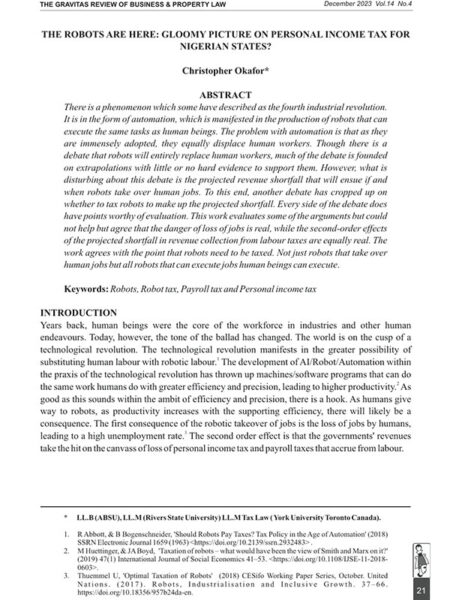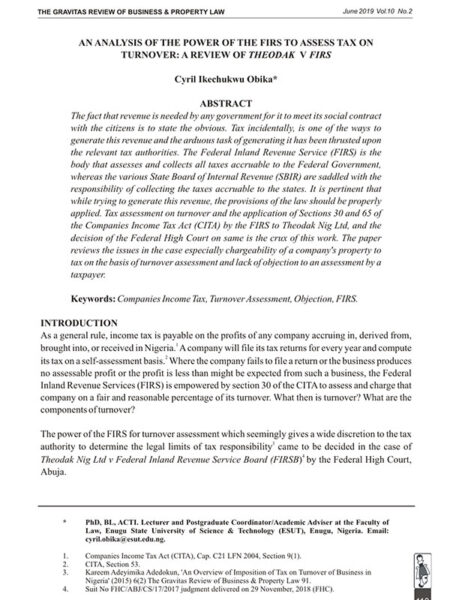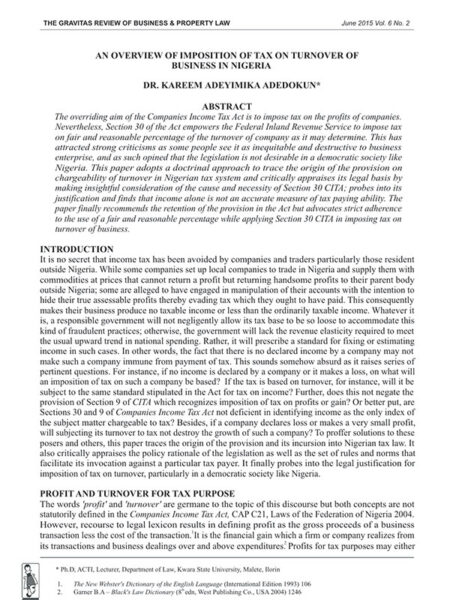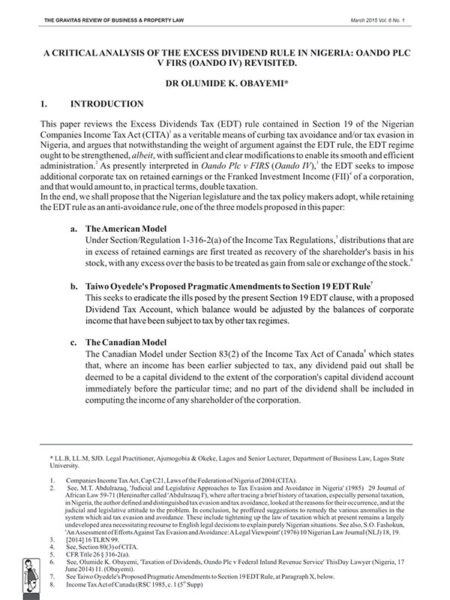-

The Robots Are Here: Gloomy Picture on Personal Income Tax for Nigerian States?
0₦2,500.00Christopher Okafor Esq, in this article, The Robots Are Here: Gloomy Picture on Personal Income Tax for Nigerian States, examines the emergence of robots in the workplace with its potentiality for job losses and a reduction in taxable revenue. The emerging phenomenon which some have described as the fourth industrial revolution is in the form of automation which is manifested in the production of robots that can execute the same tasks as human beings. The problem with the automation is that as they are immensely adopted, they equally displace human workers. Though there is a debate that robots will fully replace human workers, much of the debate is founded on extrapolations with little or no hard evidence to support. However, what is disturbing about this debate is the projected revenue shortfall that will ensue if and when robots take over human jobs. To this end, another debate has cropped up on whether to tax robots to make up the projected shortfall. Every side of the debate does have points worthy of evaluation. Okafor evaluates some of the arguments but could not help but agree that the danger of loss of jobs is real, while the second order effects of projected shortfall in revenue collection from labour taxes is equally real. Okafor agrees with the point that robots need to be taxed. Not just robots that take over human jobs but all robots that can execute jobs human beings can execute.
-

An Analysis of the Power of the FIRS to Assess Tax on Turnover: A Review of Theodak v FIRS
0₦2,500.00Dr Cyril Obika of the Faculty of Law, Enugu State University of Science & Technology, Enugu Nigeria in his article, An Analysis of the Power of the FIRS to Assess Tax on Turnover: A Review of Theodak v FIRS posits that ordinarily the FIRS, under section 9 of the Companies Income Tax Act 1961 as amended (CITA) charges to tax the profits of a company on its income> accruing in, derived from, brought into, or received in Nigeria. Exceptionally, under section 30 CITA the FIRS may charge a ‘fair and reasonable percentage’ of the turnover of a company to tax where there is no assessable profit or the profit is less than expected of such a business. Again, the FIRS under section 65 CITA may use its ‘best of judgment’ to assess tax where a company fails to file a return. Can the property of a company let to tenants be its turnover? Dr Obika examines the interrelation of sections 9, 30 and 65 of the CITA in his review of Theodak v FIRS.
-

An Overview of Imposition of Tax on Turnover of Business in Nigeria
0₦2,500.00In “An Overview of Imposition of Tax on Turnover of Business in Nigeria” Dr. Kareem Adedokun of the Kwara State University argues that subjecting the Turnover of Business, rather than its profit, to tax is a necessary anti-avoidance rule and compatible with the status of Nigeria as a democratic country.
-

A Critical Analysis of the Excess Dividend Rule in Nigeria: Oando Plc v. FIRS (Oando IV) Revisited
0₦2,500.00Dr Olumide Obayemi, Senior Lecturer, Lagos State University and legal practitioner with Ajumogobia & Okeke, examines whether additional tax on retained earnings of companies amounts to double taxation in “A Critical Analysis of the Excess Dividend Rule in Nigeria: Oando v FIRS (Oando IV) Revisited”.
The Gravitas Review of Business & Property Law



